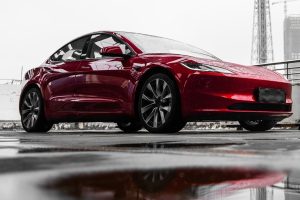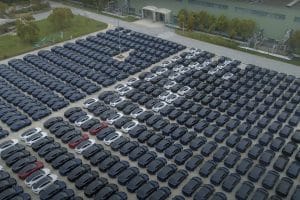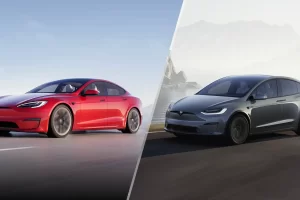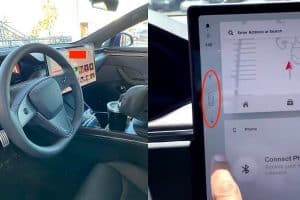Elon Musk may have caught the ire of many by suggesting a controversial way for the Russia-Ukraine War to end, but in a recent interview, the Tesla CEO also shared some of his thoughts on a potential peace plan between China and Taiwan. The plan was met with widely opposite reactions from the Chinese and Taiwanese governments.
Tesla and its China operations play a massive role in the electric vehicle maker’s overall operations, with Gigafactory Shanghai providing about half of the company’s global output last year. In September, Tesla China posted record sales of 83,125 vehicles, up 8% from the previous month and up 48.44% year over year, as per data from the China Passenger Car Association (CPCA).
THE RECOMMENDATION
During an interview with the Financial Times, Musk was asked about his thoughts on China and the risk to Gigafactory Shanghai amidst the tensions surrounding Beijing and Taiwan. According to the publication, Musk noted that the conflict in Taiwan is inevitable, but his companies would definitely not be the only ones suffering the consequences. Musk then proposed a solution for the conflict.
“My recommendation… would be to figure out a special administrative zone for Taiwan that is reasonably palatable, probably won’t make everyone happy. And it’s possible, and I think probably, in fact, that they could have an arrangement that’s more lenient than Hong Kong,” Musk said.
CHINA’S PRAISE
Musk’s recommendation won praise in Beijing, with China’s ambassador to the US, Qin Gang, thanking the CEO for his remarks. The ambassador also noted in a tweet that Musk’s proposal was “the best approach to realizing national reunification.”
“I would like to thank Elon Musk for his call for peace across the Taiwan Strait and his idea about establishing a special administrative zone for Taiwan. Actually, Peaceful reunification and One Country, Two Systems are our basic principles for resolving the Taiwan question and the best approach to realizing national reunification.
“Provided that China’s sovereignty, security and development interests are guaranteed, after reunification Taiwan will enjoy a high degree of autonomy as a special administrative region, and a vast space for development.
“The rights and interests of the people in Taiwan will be fully protected, and both sides of the Taiwan Strait will share the glory of national rejuvenation. Peaceful reunification of China is also conducive to peace and development in the Asia-Pacific and the wider world,” the ambassador wrote on Twitter.
TAIWAN’S CRITICISM
Inasmuch as Musk’s comments were appreciated by China, they were widely criticized in Taiwan. So notable were the criticisms of Musk’s suggestions that they actually united Taiwan’s divisive political environment. Taiwan’s de facto ambassador to the US, Hsiao Bi-khim, for one, noted that Taiwan’s “freedom and democracy are not for sale.” “Any lasting proposal for our future must be determined peacefully, free from coercion, and respectful of the democratic wishes of the people of Taiwan,” she said.
Former Taiwan president Ma Ying-jeou also condemned Musk’s proposal. “Elon Musk’s opinion means ‘one country two systems.’ I cannot accept this,” the former president said.
Even opposing candidates from the upcoming Taipei mayoral race were united in rejecting Musk’s ideas. Chen Shih-chung of the ruling Democratic Progressive Party (DPP), stated that the Tesla CEO’s comments were “ill-informed and belittling and could affect our national security.” He also called on Musk to do better.
“Elon Musk has brought about revolutionary change through Tesla and SpaceX, even aiding Ukraine against the Russian dictatorship through Starlink. I’m calling on Elon to hold himself to the same democratic values regarding Taiwan,” he said.
Chiang Wan-an, Chen’s opponent from the Kuomintang party, accused Musk of being “hungry for the Chinese market.” He also argued that Musk is “trading with the devil” due to his business with China.
THE CONFLICT
The tensions between China and Taiwan stem largely from the former’s claims that the latter is a province. Taiwan, on the other hand, has maintained that it is an independent nation. China has hinted that it could annex Taiwan by force so that it could be “unified” with the mainland. However, a growing majority of Taiwanese citizens reject the idea of being unified with China, with some even supporting the idea of outright independence.





